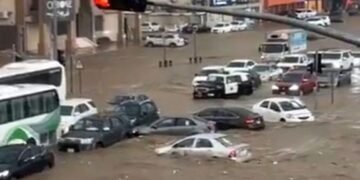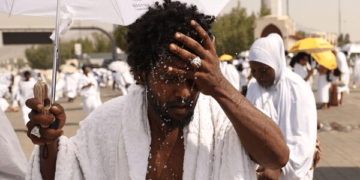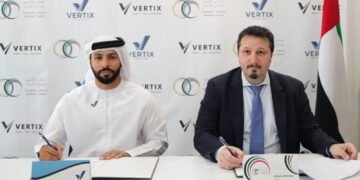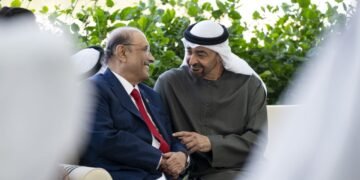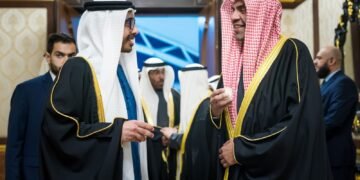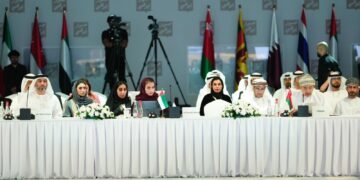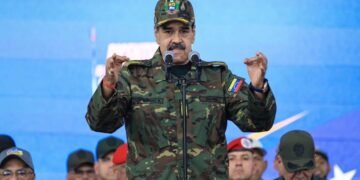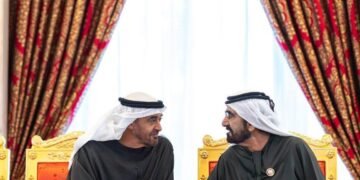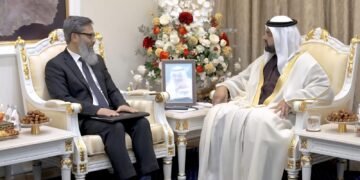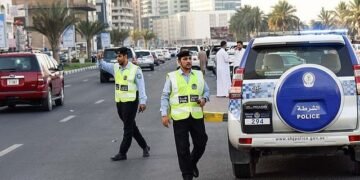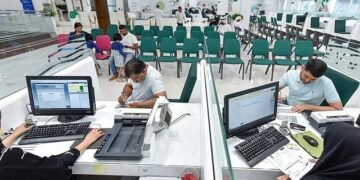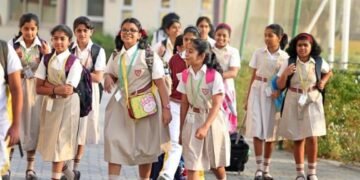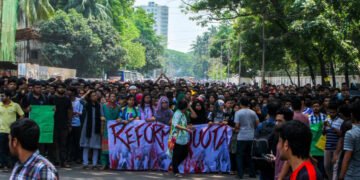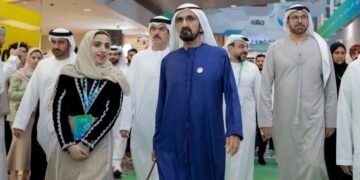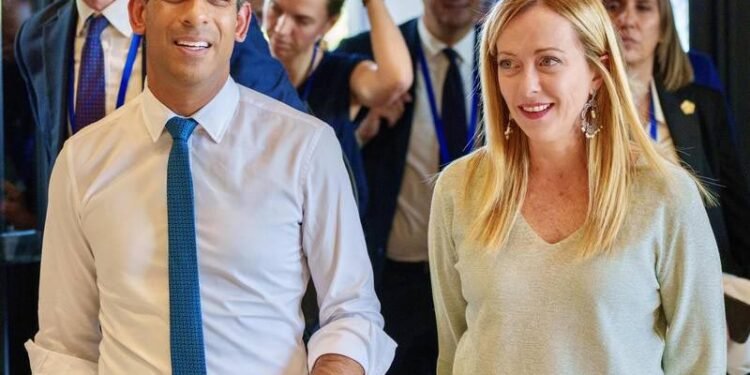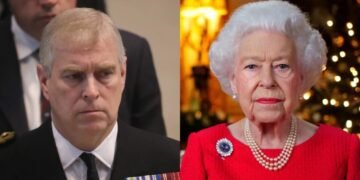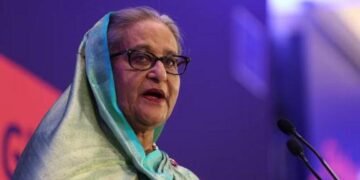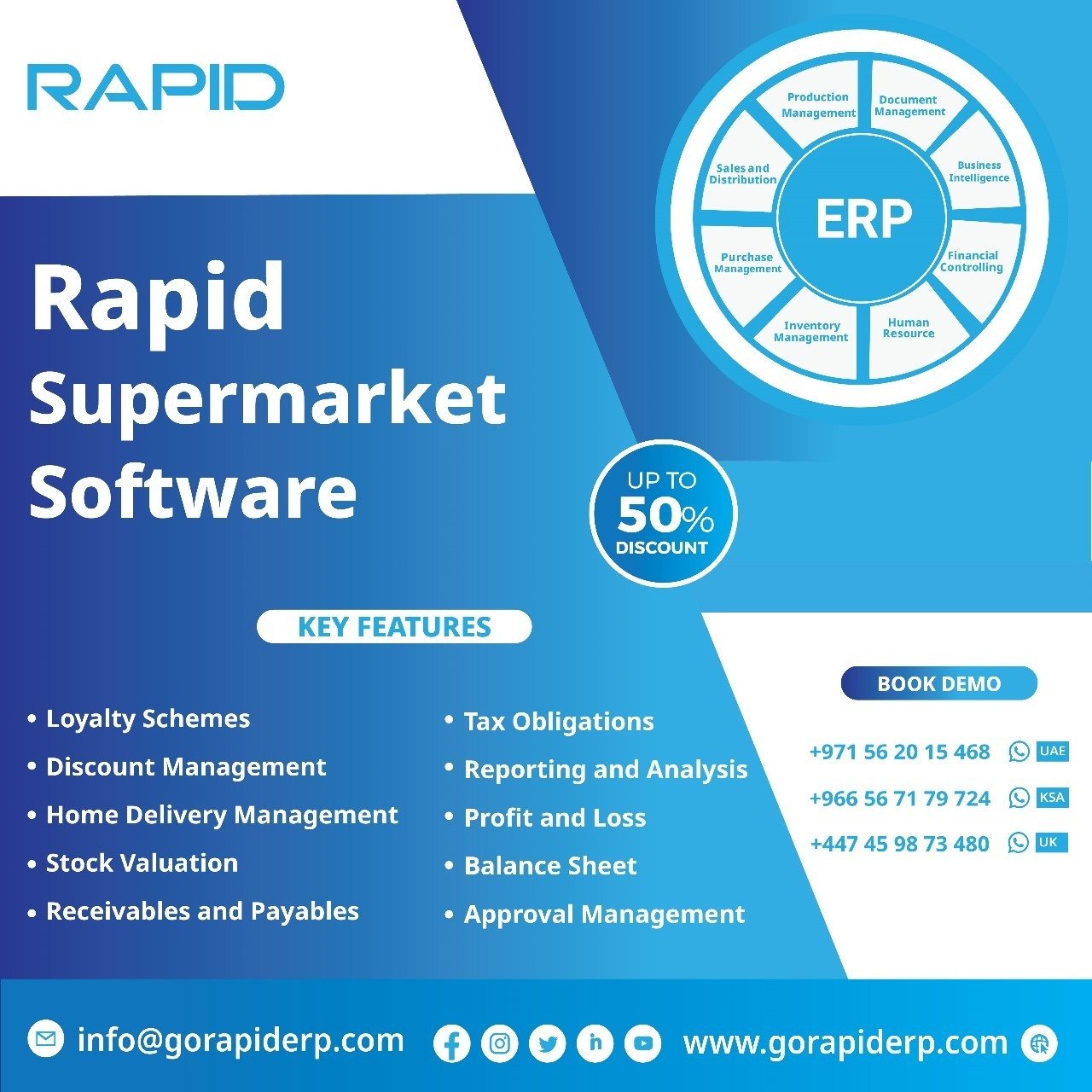The UK, France, Spain and Italy acknowledge new approach needed to manage migrant arrivals on the continent
British Prime Minister Rishi Sunak sought to “strengthen European action to ending illegal migration” at a meeting he chaired with Italy’s leader Giorgia Meloni at the European Political Community summit in Spain.
The pair used a Europe-wide gathering of leaders to demand action on tackling the boats that bring asylum seekers into Europe, where people-smuggling gangs run lucrative border-busting rackets from the English Channel to the Mediterranean.
“We are working together to stop the boats and we are calling on others to act with the same sense of urgency,” Ms Meloni and Mr Sunak said, a day after co-hosting a meeting on immigration with other European leaders.
French President Emmanuel Macron, Dutch Prime Minister Mark Rutte, Albanian Prime Minister Edi Rama and European Commission President Ursula von der Leyen also took part in the talks, held on the sidelines of a wider summit in Granada.
“Leaders committed to take action to support one another to tackle the challenges of illegal migration,” Ms Meloni and Mr Sunak said. “We’re proud that Italy and the UK are leading on this together.”
Mr Macron told the meeting he would join the anti-gang campaign.
“We will have common actions based on a coalition of the willing, meaning members of the EU Commission plus Albania and UK, and all the others ready to join the initiative to work together vis-a-vis transit and origin countries in order to fight against migration,” he said.
Spain declined to put the issue on the wider agenda. Frontline countries cannot cope with irregular immigration without help from the EU, Prime Minister Pedro Sanchez said.
“We cannot let some areas of our country, such as the south, the Canary or Balearic Islands, face and assume all this irregular migration without solidarity,” he said.
In the days before the talks, Spain, Italy and Germany had raised concerns over the increasing number of arrivals, while eastern EU countries said they were tightening their borders.
Sea arrivals to Spain from Senegal and other African countries have increased by a fifth so far this year compared with 2022, with more than 3,500 reaching the Canary Islands last month amid milder weather and calmer seas, according to official statistics.
Italy’s island of Lampedusa has also seen more irregular immigration this year, posing a political headache for Ms Meloni, who won power last year on promises of reducing arrivals.
She welcomed a deal between the 27 nations on Wednesday about sharing the task of hosting and providing for new arrivals.
The agreement puts the bloc closer to overhauling its asylum and migration system after a decade of bitter internal disputes.
100,000 migrants cross the Channel in five years – in pictures
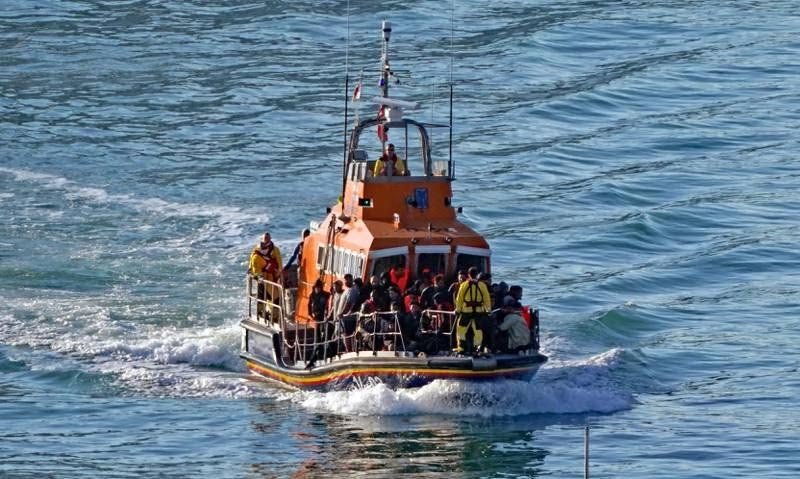
Meanwhile, when Mr Sunak was asked at the Granada summit if there would be an intelligence-sharing agreement on Frontex, the EU’s border protection service, he replied: “We’ve been working with the European Union, making progress on those talks.
“Those talks are ongoing. We’re always looking for ways to strengthen our co-operation with partner countries and entities to combat illegal migration.”
It has been reported that officials in London and Brussels have concluded the substance of the agreement.
It would allow domestic agencies to monitor the whole of the EU’s external borders rather than just shared frontiers, The Daily Telegraph reported.
The bilateral initiatives with Belgium, Bulgaria and Serbia are to increase intelligence-sharing and operational co-operation.
Under the plan, the UK would work with Belgium to try to disrupt organized immigration crime and clandestine entry to Britain, and seek to co-operate further with Serbia on prosecuting and disrupting criminal networks.
The Frontex deal would build on these pacts by deepening the Border Force’s understanding of smuggling routes through Turkey and the western Balkans, The Telegraph reported.
Source: The National

